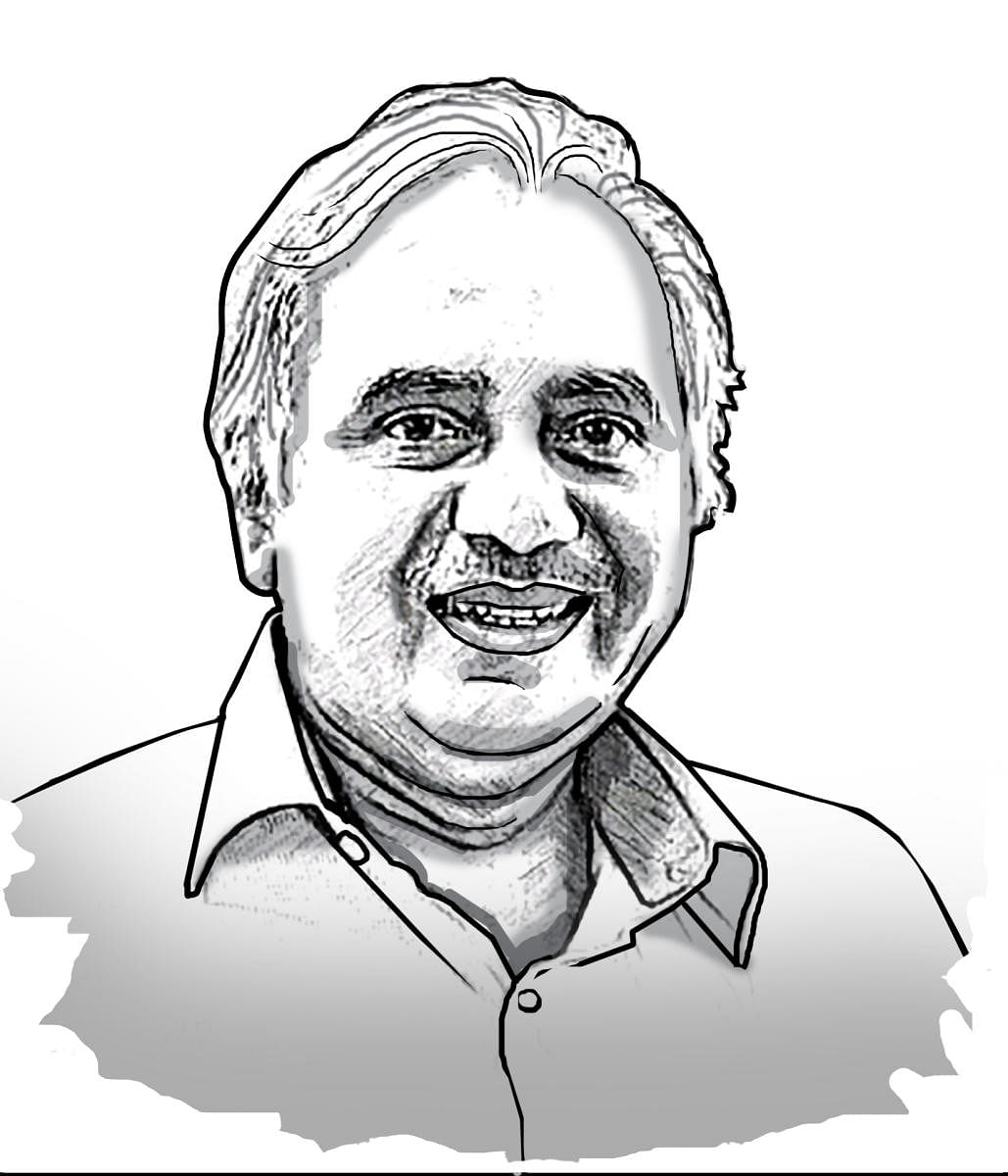India must seize the new start signalled by Gotabaya
India and Sri Lanka scripted a new chapter in their age-old relationship dating back eons. The visiting new President, Gotabaya Rajapaksa, feared and admired for his intrepid style of functioning and considered a leading strategist who oversaw the fag end of the war against the dreaded LTTE, registered an impressive victory, polling 52% of the vote in the recent presidential election. In a keenly contested election, his emphasis on national security -- in the background of the Easter bombings in April -- and economic development became a “we can do it” moment for the island nation.
His choice of New Delhi for his first official foreign visit as President is significant and is sure to send the right signals for those looking for it. Soon after his victory, the Narendra Modi government rushed foreign minister S Jaishankar to Colombo, mainly to set the record straight. A section of the Indian media painted Gotabaya as a pro-China leader and raised unsubstantiated alarm over his possible tilt towards Beijing. He was also demonised as a warmonger for his role in liquidating the LTTE. The last days of the civil strife had witnessed bloody scenes in which thousands of civilians held as human shields by the retreating LTTE forces became “collateral damage.” “I did not start the war”, Gotabaya is reported to have said, but he and his brother Mahinda Rajapaksa certainly ended it, and decisively.
Putting all the past to rest the Rajapaksa family is at the helm of affairs once again, thanks to the domestic political dynamics of the island nation that lies strategically between India and the South Pole.
The visiting President has more or less echoed the sentiments expressed by his brother, Prime Minister Mahinda Rajapaksa, himself a former president, saying that he would work with Prime Minister Modi for peace and prosperity of both countries and the region.
Going by Gotabaya’s statements, it appears that he has a deeper understanding of the regional situation and would be an important ally for New Delhi in its attempts to reframe its role in the region to regain the lost strategic space.
Sri Lanka under the Rajapaksa clan is probably the only country to have decisively dealt with a terrorist outfit. But the end of the civil strife in 2008-9 posed a series of problems for Colombo inviting the wrath of international human rights agencies for the civilian deaths in its North and East provinces. The Rajapaksa regime rolled out rehabilitation projects under ‘Vadakkin Vasantham’ (Spring in the North) project but it did very little to improve the investment climate. Starved of investments, Colombo had very little option but to look towards India and China.
New Delhi objected to Colombo handing over the strategic Hambantota port project to China. But knowledgeable sources recall that the Lankans had first offered it to India around 2006, but New Delhi was not interested because it regarded the project as unviable. Beijing was quick to realise the strategic importance of the port and grabbed the project. It is no secret that India has lost a number of such strategic initiatives and commercial offers in the region mainly due to poor initiative and indifferent attitude.
The pro-China tilt charge against Rajapaksa was picked up by his political opponents, leading to a change of government headed by his former health minister Maitripala Sirisena, who promised a course correction. Ironically, his United Front government also soon turned to Beijing and became part of Xi Jinping’s flagship Belt and Road Initiative, awarding the $1.4 billion land reclamation (Colombo Port) project to China Harbour Engineering Company.
The return of the Rajapaksa clan should be an opportune moment for New Delhi to bury the past and work towards a new future. It is an opportunity for the Modi government to put an end to the “region becoming pro-China” narrative rather than wallowing in self-inflicted diplomatic damage.
Gotabaya came, aware of India’s deep concern for security and keeping the power equation in the region balanced. His assertion of a “low key” approach towards Beijing and strictly “neutral foreign policy” is music to many in South Block, but none of this can be taken for granted.
Governments in the past and, to a large extent, even the Modi administration has allowed party functionaries and the likes of fly-by-night operators and fringe elements in the political arena in Tamil Nadu to dabble in the strategic and diplomatic decision-making process in the neighbourhood. We can boast of a well-oiled diplomatic machinery to take care of our core interests, which should ideally be supported by academicians and serious think-tanks.
Thankfully, the Modi government is determined to correct India’s image and correct the course while recalibrating our economic and diplomatic engagements with our immediate neighbours. Countries in the region are facing similar problems of poverty, unemployment, terrorism and non-conventional threats.
India should take a leading position and play a seminal role in the region, and after Gotabaya’s visit, it appears that Colombo would be a willing partner.
(Seshadri Chari reads between the lines on big national and international developments from his vantage point in the BJP National Executive and the RSS @seshadrichari)
